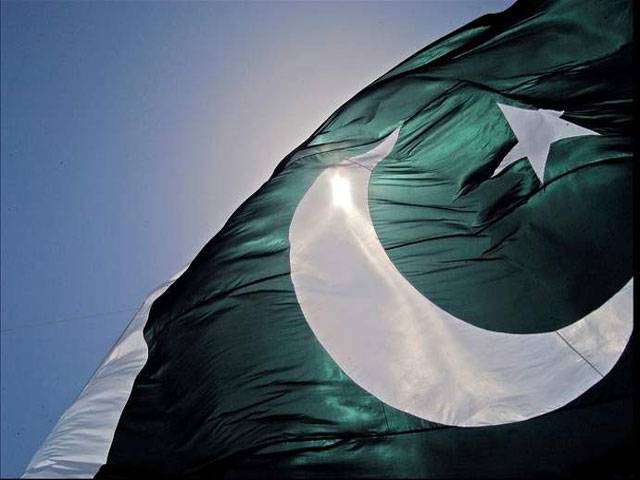ISLAMABAD - Multiple global crises over the last few years have slowed down progress for some key Millennium Development Goals as prevalent humanitarian constraints continue to pose challenges ahead of the MDGs 2015 deadline, a UN document said Tuesday.
According to the United Nations Millennium Development Goals 2012 report, the MDGs, agreed by the world leaders over a decade ago, have achieved some important targets. Working together, the governments, the UN family, the private sector and civil society have succeeded in saving many lives and improving conditions for many. Yet, the world community has either shown little progress to tackle some key challenges or it has yet to make its presence felt regarding some core factors that are greatly but adversely impacting human lives, the 72-page report released in 193 UN member states reveals.
Pakistan’s record vis-à-vis this year’s MDGs does not project an encouraging picture. According to the UN Pakistan, the country has adopted 18 targets and 41 indicators against which progress is measured. However, time series data against only 33 indicators is available.
Of the total 33 indicators, progress on 20 indicators is lagging behind, slow on four indicators, on track on three indicators, off track on one indicator while targets against only five indicators have been met.
This suggests that of the total 33 indicators whose data is available, the country has achieved targets in only five while it is ‘on track’ in only three indicators.
Some stark contradictions are also evident in the UN’s MDG 2012 report. The three indicators where Pakistan stands on track or ahead of the targets include reduced child mortality, combat HIV/AIDS, malaria and other diseases and ensure environmental sustainability. Surprisingly, one of the two indicators where Pakistan has shown slow progress also includes combat HIV/AIDS, malaria and other diseases. Promote gender equality and women’s empowerment is the second indicator on Pakistan’s slow progress.
The country is either ahead or has achieved the target with regard to access to improved water source.
One of the indicators where situation has really worsened in the past four years in Pakistan is the proportion of population below minimum level of dietary energy consumption.
As many as 23 international organisations including the UN agencies, non-governmental organisations (NGOs), international non-governmental organisations (INGOs) and international monitory bodies like World Bank and World Trade Organisation (WTO) had prioritised eight targets for this year’s MDGs. Their respective details are as follow: Goal one: Eradicate extreme poverty and hunger. Goal two: Achieve universal primary education: Goal three: Promote gender equality and empower women. Goal four: Reduce child mortality. Goal five: Improve maternal health. Goal six: Combat HIV/AIDS, malaria and other diseases. Goal seven: Ensure environmental sustainability and goal eight: Develop a global partnership for development.
Comparing achieved and missed targets this year, the report findings are: Achieved targets: Extreme poverty is falling in every region.
The poverty reduction target was met. The world has met the target of halving the proportion of people without access to improved sources. Improvements in the lives of 200 million slum dwellers exceeded the slum target.
The world has achieved parity in primary education between girls and boys. Many countries facing the greatest challenges have made significant progress towards universal primary education.
Child survival progress is gaining momentum. Access to treatment for people living with HIV increased in all regions. The world is on track to achieve the target of halting and beginning to reverse the spread of tuberculosis. Global malaria deaths have declined.
The missed targets: The report mentions that vulnerable employment has decreased only marginally over twenty years. Decreases in maternal mortality are far from the 2015 target.
Use of improved sources of water remains lower in rural areas. Hunger remains a global challenge. The number of people living in slums continues to grow.
Friday, April 26, 2024
Pakistan lags behind in key indicators

KP appoints Sonia Shamroz as first woman AIG police
11:26 AM | April 26, 2024
SACM visits GTVC, checks attendance register
April 26, 2024
Terrorism to be combated with joint efforts: Saif
April 26, 2024
Agreement signed to develop Haripur Digital City
April 26, 2024
Sherry urges PTI to avoid disruptive politics
April 26, 2024
Economic Challenges
April 26, 2024
No Compromise
April 26, 2024
Strength and Solidarity
April 26, 2024
Musk vs Australia
April 25, 2024
Reforming Rehab
April 25, 2024
Photon power
April 26, 2024
Justice prevails
April 26, 2024
Ending animal suffering
April 25, 2024
AI governance
April 25, 2024
AI concerns
April 25, 2024
ePaper - Nawaiwaqt
Advertisement
Nawaiwaqt Group | Copyright © 2024





